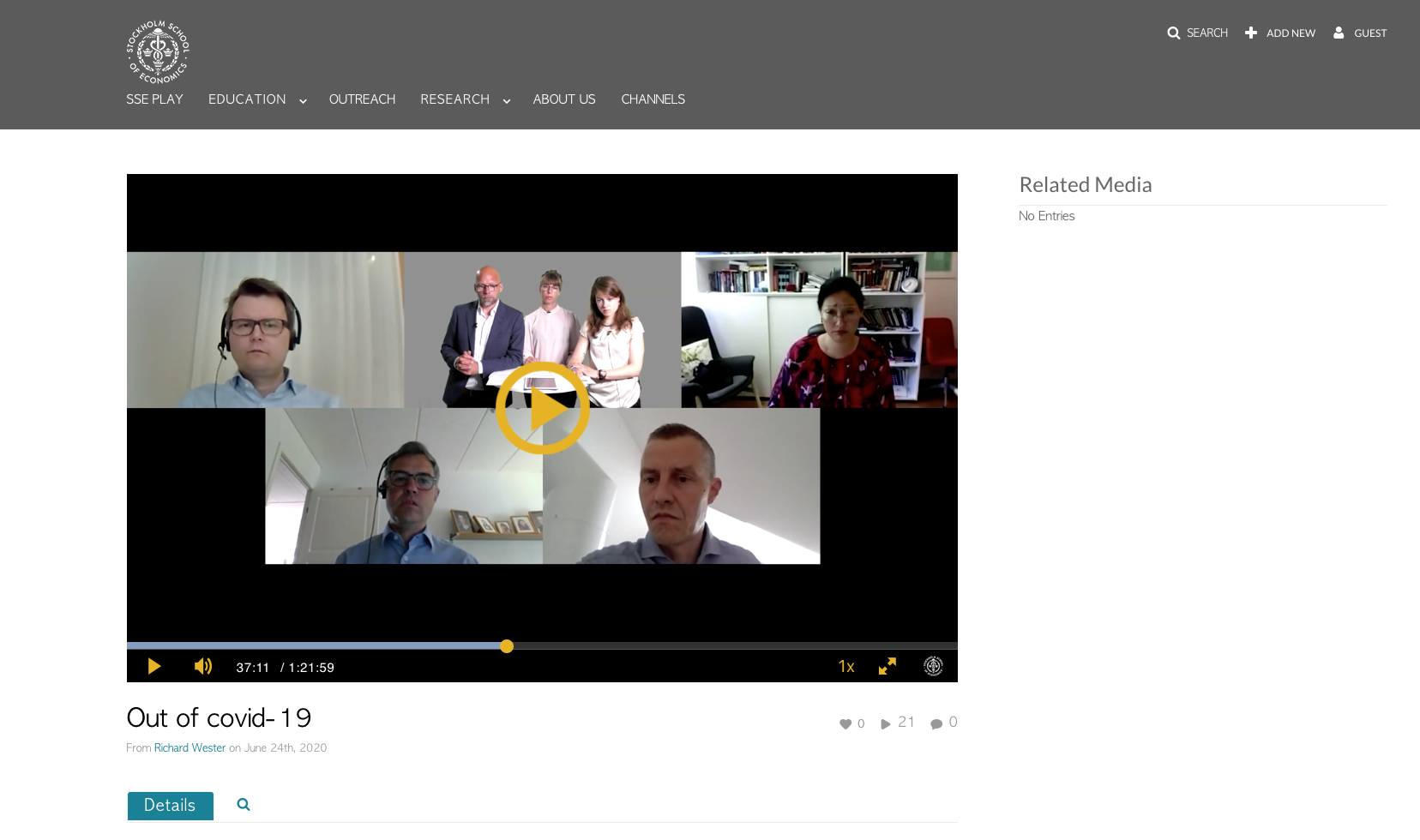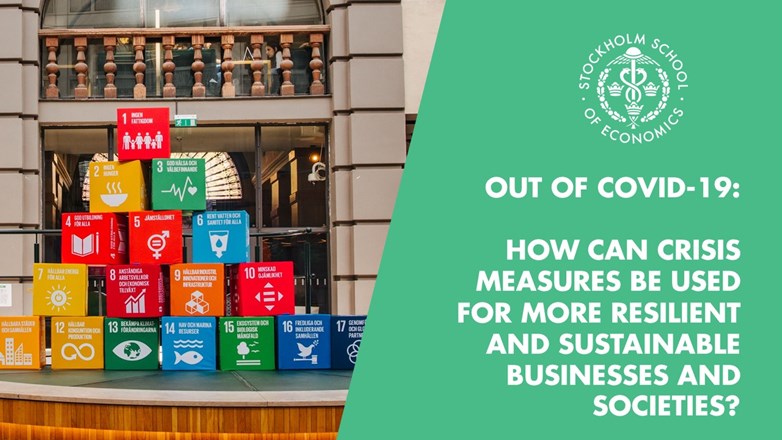Out of COVID-19: How can crisis measures be used to create more resilient and sustainable businesses and societies?
On June 12, the Stockholm School of Economics (SSE) interdisciplinary umbrella group “Sustainable SSE” (SSSE) and Misum invited researchers, business leaders and the public to a digital panel discussion how governments, authorities, businesses and other actors can move out of the Covid-19 crisis together and invest in the sustainable development of society in a global context.
WATCH THE WEBINAR HERE

We were inspired by the high turn-out of diverse participants and the clear reinforcement of support for sustainable development considerations in socio-economic recovery plans.
Key take-aways to design sustainable recovery measures:
- ALL ARE NOT TREATED EQUALLY: The pandemic reinforces existing sustainability challenges and disproportionally hits marginalized people, low-income groupsand developing countries
- DON’T FORGET THE BIGGER PICTURE: Temporarily positive environmental effects of the economic downturn are likely to rebound ifdecisive policies for decarbonization aren’t realized. Politicians need to take the lead in designing holistic political responses. The 17 UN Sustainable Development Goals (SDGs) and their sub-targets should be used as a roadmap for priorities.
- REORIENTATE INVESTMENTS & POLICY: Businesses and the financial sector want to see clear signals from governments to re-orient production and investments. Selective grants for green businesses, redirecting fossil fuel subsidies, higher taxes for detrimental practices and incentives for sustainable purchasing are some examples.
- A UNIQUE GENERATIONAL OPPORTUNITY: The human cost and suffering at the hands of Covid-19 has been vast. We must move decisively during this time towards an equitable green transition and a deep, systematic re-organization of public-private relations.
- Resources and conditions in stimulus packages can be tied to improved social-ecological obligations.
- Industry can focus on health and climate justice as a tangible and efficient measure through which to rebuild faster and smarter.
- When we focus on a green transition, recovery packages can’t lose sight of the holistic picture of the SDGs. A unilateral climate focus can risk trigging negative social economic tradeoffs.
- More organization and less market is desirable in some areas. State frameworks and regulations that incentivize for a green,circular economy and systemic transition have to be politically decided on and implemented.
